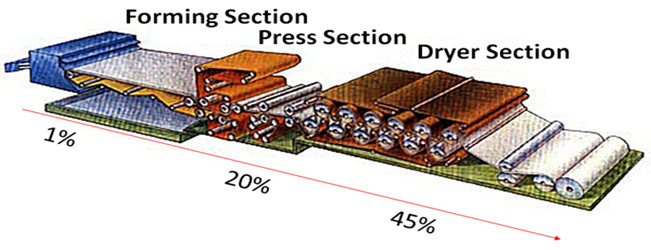
| Welcome to my website! | |
| Tel:0086-311-85355781 | |
| Fax:0086-311-85355781 | |
| Email: sales@polyestermesh.net trade@china-polyestermesh.com |
|
| Add:WUGONG TOWN WEST,RAOYANG COUNTY,HEBEI,CHINA | |
Paper machine clothing can be divided into two kinds: clothing for the wet and clothing for the dry end.
The clothing for the wet end also called the wire, because the first wires were made of woven wire. One of the first innovations of the wire was a staggered weave that eliminated the problems of wires hanging up or freezing in the suction boxes. Another important early innovation was the welded seam which replaced hand-woven seams. This eliminated the visible line created each time the seam made it way around the moving wire. But wire is basically an inflexible material. If stretched, bent, or frayed, the anomalies remain in the wire and affect the look and consistency of the paper. Wire is also not very resilient and the older wires often broke. Wires were often replaced daily, sometimes several times a day in the early machines.
The development of monofilament forming fabric, or plastic thread wires which could stretch and snap, made the higher speeds and increased productivity possible of today's machines. A monofilament fabric usually lasts at least several months before maintenance is required.
Dry end clothing is usually made of felt. Felt is the paper machine clothing used to pick the wet stock off the wire. It also acts as a blotter, soaking up water, in the press section of the machine. The felt usually passes between a series of press rolls which squeeze out more water. It can also be applied in the multiple dryer section.

Bella
Sales manger
Hebei Defeng Polyester Fiber Co.,Ltd
Add: Wugong town west, Raoyang county, Hengshui, Hebei, China
Tel: 86-311-67699480
Fax: 86-311-67699480
Mail: bella@china-polyestermesh.com
Website: www.china-polyestermesh.com
Tags: paper machine clothing, monofilament forming fabric